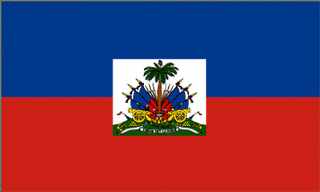Middle Eastern states took measures this week to weather the impact of a looming US-led war on Iraq on their economies
Published:
15 March 2003 y., Saturday
In Amman, Minister of Commerce and Industry Salah Bashir said Thursday Jordan was counting on increasing its exports to the United States to make up for lost revenue from a halt in sales to Iraq in the event of war.
Jordan is expected to suffer the most in the region for the duration of a war, as Iraq is its biggest export market, and Baghdad has been supplying it with crude oil at a highly preferential rates for Jordanian industry. Bashir also said Jordan was planning to continue using Israel’s port of Haifa to ship its exports to the United States, mostly goods produced in duty free zones that are exempted from US duties in line with a 1996 agreement.
In Egypt, interest rates on treasury bonds were hiked for the second week in a row, reaching more than 10 percent, and state imports were frozen for three months, in order to relieve pressure exerted on the local pound by the looming war. The Egyptian pound has lost more than 20 percent to the dollar since it was free-floated on Jan. 29. Analysts said dollar-holders are generally unwilling to sell over concern that a war on Iraq might tighten hard currency supply further by causing a slump in tourism and exports.
Egypt’s flag carrier EgyptAir said Sunday flights to some destinations will be re-routed to avoid dangerous skies, and some flights will be regrouped in order to cut costs, should a war break out. The company expects serious hardship due to its dependency on tourist traffic.
In Lebanon, the central bank’s foreign currency reserves have been boosted to about $10 billion following the disbursement of funds promised last November by international donors, its governor Riad Salameh said. Lebanon has already received $2.2 billion of the $4.4 billion in loans promised by the donors’ conference held in Paris.
Šaltinis:
arabnews.com
Copying, publishing, announcing any information from the News.lt portal without written permission of News.lt editorial office is prohibited.
The most popular articles
 In its first meeting in 2010, the Gas Coordination Group, under the chairmanship of the Commission, has focused today on the assessment of the situation on security of gas supply in the EU-27 and countries of the Energy Community and discussed priorities for the work of the Group in 2010.
more »
In its first meeting in 2010, the Gas Coordination Group, under the chairmanship of the Commission, has focused today on the assessment of the situation on security of gas supply in the EU-27 and countries of the Energy Community and discussed priorities for the work of the Group in 2010.
more »
 Luc Van den Brande, President of the EU Committee of the Regions (CoR), has used his first meeting with the President of the European Council, Herman Van Rompuy, to underline the importance of consultation between local, regional and national authorities.
more »
Luc Van den Brande, President of the EU Committee of the Regions (CoR), has used his first meeting with the President of the European Council, Herman Van Rompuy, to underline the importance of consultation between local, regional and national authorities.
more »
 Basile Nkwesi, Directeur Commercial of Multiprint, speaks for dozens of frustrated business managers in this busy enterprise center when he talks about Cameroon’s costly and unreliable electricity.
more »
Basile Nkwesi, Directeur Commercial of Multiprint, speaks for dozens of frustrated business managers in this busy enterprise center when he talks about Cameroon’s costly and unreliable electricity.
more »
 During 2009, over 2400 new corporate clients, whose total number currently exceeds 16 thousand, began using Bank SNORAS services.
more »
During 2009, over 2400 new corporate clients, whose total number currently exceeds 16 thousand, began using Bank SNORAS services.
more »
 In 2009, the European Investment Bank (EIB) provided EUR 2.5 billion in 16 credit lines for financing the investment projects of SMEs (EUR 1 955 million) and local authorities (545 million) in Spain.
more »
In 2009, the European Investment Bank (EIB) provided EUR 2.5 billion in 16 credit lines for financing the investment projects of SMEs (EUR 1 955 million) and local authorities (545 million) in Spain.
more »
 In 2009, the number of counterfeit euro coins removed from circulation was 172 100, down from 195 900 the year before.
more »
In 2009, the number of counterfeit euro coins removed from circulation was 172 100, down from 195 900 the year before.
more »
 Haiti began participating in the International Monetary Fund’s General Data Dissemination System on December 28, 2009, marking a major step forward in the development of its statistical system.
more »
Haiti began participating in the International Monetary Fund’s General Data Dissemination System on December 28, 2009, marking a major step forward in the development of its statistical system.
more »
 According to the data of NASDAQ OMX Vilnius Stock Exchange, the price of Bank SNORAS registered ordinary shares grew by more than 2.5 times.
more »
According to the data of NASDAQ OMX Vilnius Stock Exchange, the price of Bank SNORAS registered ordinary shares grew by more than 2.5 times.
more »
 The European Commission has cleared under the EU Merger Regulation the proposed acquisition of Cadbury PLC of the UK by Kraft Foods Inc. of the US by way of public offer.
more »
The European Commission has cleared under the EU Merger Regulation the proposed acquisition of Cadbury PLC of the UK by Kraft Foods Inc. of the US by way of public offer.
more »
 Statistics Lithuania informs that construction input prices inNovember 2009, against October, dropped by 0.5 percent.
more »
Statistics Lithuania informs that construction input prices inNovember 2009, against October, dropped by 0.5 percent.
more »